The alleged fugitive judge Gholamreza Mansouri, who faces a massive bribery corruption charge in Iran, has surprised everyone by issuing a video statement in which he claims to have “full faith” in the Islamic Republic’s justice system.
Mansouri is a well-established judge who has a reputation for the brutal and unfounded incarceration of journalists. He is accused of having accepted a bribe of 500,000 euros.
He was reported on Monday to have “fled the country” and Iranian state news outlets claim he is now receiving hospital care in Hanover, Germany, under the care of an Iranian physician, Majid Samii.
In the video published on Monday, Mansouri said he had appointed a lawyer to address the charge against him. He added that he had faith in the Islamic Republic's judicial system, insisted he was not a fugitive and will return to Iran when the borders reopen.
Mansouri also said he will attend the trial of Akbar Tabari, a former deputy of Iran’s judiciary, which opened three days ago in Iran. Tabari previously served as the judiciary’s director of finance and is among 21 accomplices accused of corruption, money laundering and influence trading. It follows a mass corruption probe last year that saw several senior figures arrested and the then-head of judiciary, Sadegh Larijani, deposed on the order of Iran’s Supreme Leader, Ayatollah Khamenei.
Mansouri’s name came up during early proceedings when the prosecutor mentioned he had received 500,000 euros in bribes while serving as a judge in Lavasanat, north of Tehran.
Who is Judge Mansouri and Why is He in Germany?
Mansouri is a judge at the Government, Culture and Media Employees' Court and also sits as a judge in Lavasanat. According to Radio Farda, he issued arrest warrants for 20 journalists in a single day on February 8, 2013 and has also ordered raids on several newspaper offices in Iran.
Numerous journalists who have been arrested in the past decade, on fabricated or unproven charges, have said they were placed in solitary confinement and imprisoned on the order of Judge Mansouri. The charges against them were never substantiated, they say, but the bail money paid for their release was still kept by the judiciary.
A BBC story also says Mansouri took hostage the family of Saeed Karimian, owner of the Turkey-based Persian entertainment channel Gem TV, in the early 2010s and held them in prison in appalling conditions in a bid to shut down its activities. But after Karimian closed the channel he did not release the hostages, leading to Gem TV going back on air after 10 days. In April 2017, Karimian was shot dead in Istanbul along with a business partner in what is thought to have been an Iranian state-sponsored assassination.
How Can Justice be Served?
According to the European Charter of Human Rights, of which Germany is a signatory, Mansouri’s actions during his tenure as a judge amount to human rights abuses. These include torture, hostage-taking, arbitrary arrests, and quite possibly complicity in murder.
Torturing individuals is one of the crimes that advanced legal systems such as the European Charter of Human Rights consider to be a matter of human conscience, and for this reason, citizens of other countries such as Iran are subject to international prosecution in countries such as Germany.
Mansouri is in Germany on a temporary visa and as yet, no action against him has been taken there. But if a complaint is made to German law enforcement, a temporary arrest warrant may well be issued due to the strong possibility of escape. This is a time-consuming process and sometimes comes too late.
Iran’s former chief justice, Mahmoud Hashemi Shahroudi, who oversaw the execution of teenagers during his brutal 10-year tenure and is considered a mass murderer by human rights activists, also evaded justice in Germany. In 2017 he was admitted for medical treatment at Majid Samii’s hospital in Hanover: the very same one where Mansouri is reportedly receiving treatment now. Many Iranians from Germany protested his presence and a German MP tried to sue him on charges of “murder” and “crimes against humanity”. But two days after the complaint was filed, and before the German judiciary could take action, Shahroudi left the country for Iran.
Elsewhere in Stockholm, the capital of Sweden, authorities are presently taking action against Iranian suspects of major international crimes. An arrest warrant has been issued for Hamid Nouri, an assistant public prosecutor in Evin and Gohardasht prisons, suspicion of involvement in the arbitrary and indiscriminate killings of thousands of Iranian dissidents in the summer of 1988. This has given the plaintiffs the opportunity to submit documents to the court to prove that this person is guilty.
According to the principle of universal jurisdiction, when a fair trial is not possible by the domestic judiciary of a country such as the Islamic Republic of Iran – that is to say, when the judicial system is unable or not motivated to prosecute a crime – the victims of the suspects or defendants can prosecute in the courts of other countries with a fair judiciary.
The principle of universal jurisdiction allows the German courts to order the temporary detention of Gholamreza Mansouri as long as he is in Europe. Whether this will take place, however, is anyone’s guess.
visit the accountability section
In this section of Iran Wire, you can contact the officials and launch your campaign for various problems




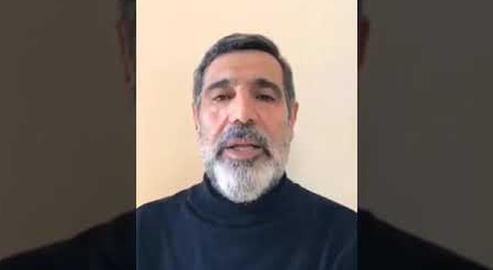
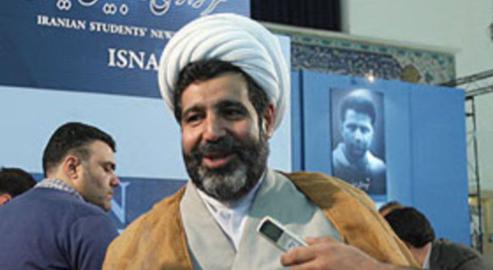
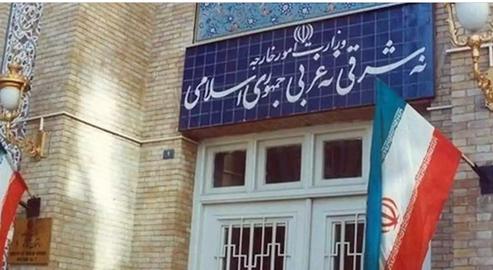
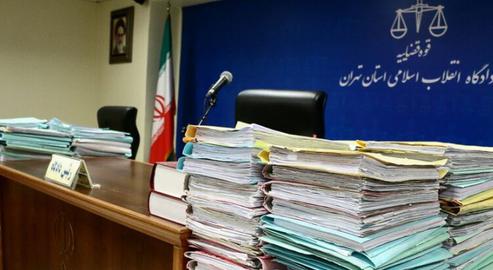



















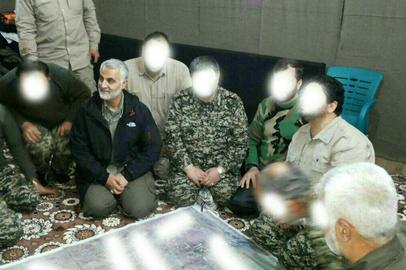
comments